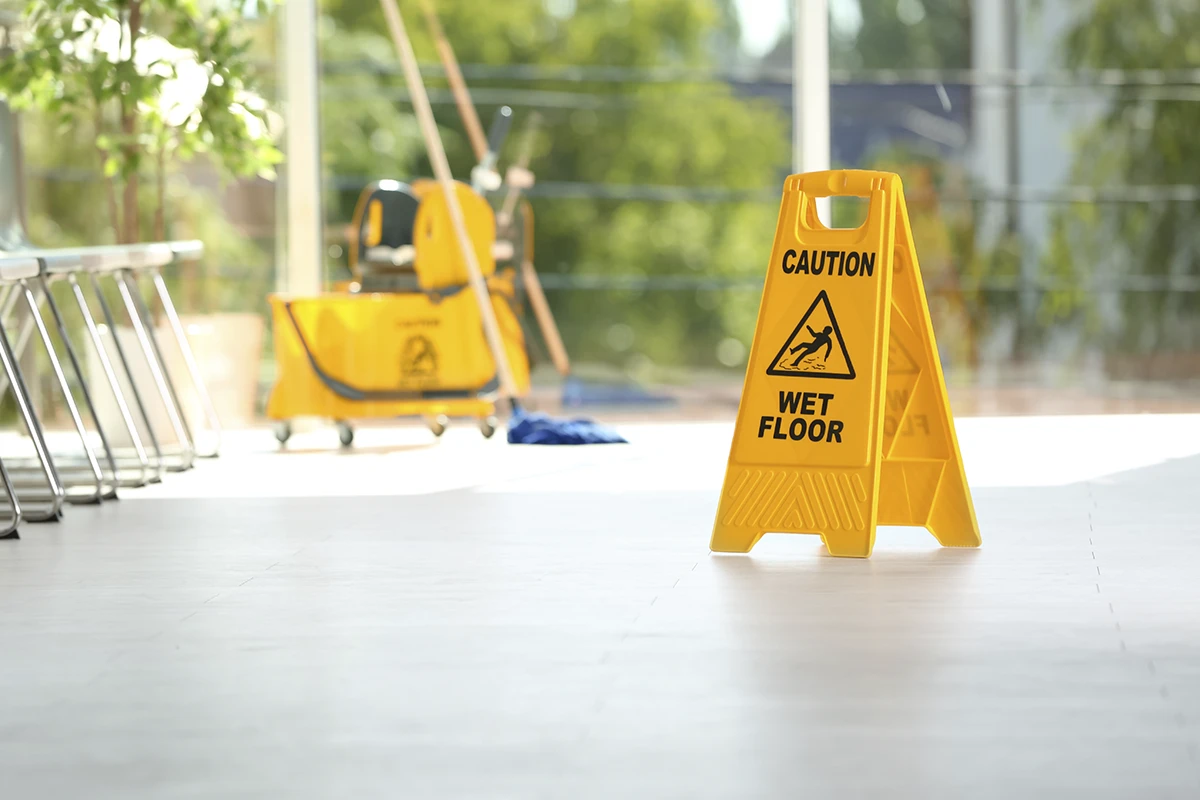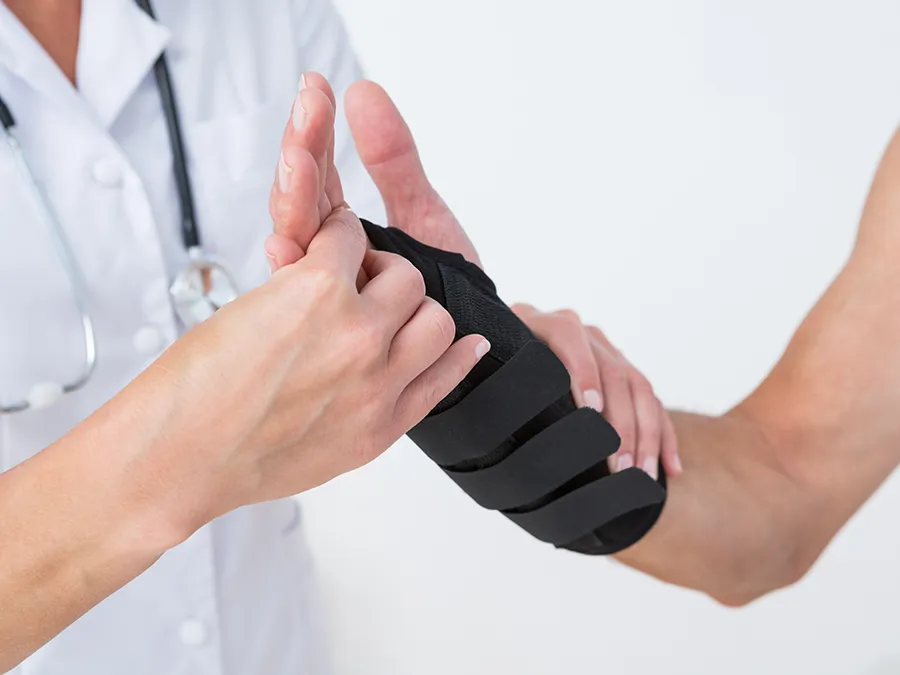When a property owner in Florida fails to ensure their property is safe for guests, accidents like slips, trips and falls can occur. Unfortunately, something as seemingly minor as an uncleaned spill can result in serious and catastrophic injuries.
Legal cases resulting from these types of accidents, known as premises liability cases, can be complex, with insurance companies and property owners often offering unreasonably low settlements or attempting to avoid paying claims altogether.
That’s where we come in.
At Redondo Law, experienced Miami injury attorney Mike Redondo can help you navigate the complexities of your slip and fall claim and assist you in pursuing the compensation you need and deserve.
Find out more about how Redondo Law can help with your claim by scheduling a free consultation.
What is premises liability?
Premises liability is the legal term that refers to the obligation a property owner has to ensure individuals on their property are not exposed to dangerous conditions that could cause harm. If a property owner discovers an unsafe or hazardous condition on their property, they must generally remove the hazard, or if unable to do so, provide adequate warning of the hazard to guests visiting the property.
However, this does not mean the property owner is liable for any injury that occurs on their property. Premises liability only covers injuries that occur due to an accident caused by a hazardous condition the property owner knew about or should have known about.
In Florida, to prove liability for a slip and fall accident caused by a spill, for example, the victim must be able to prove that the property owner knew or should have known about the spill. This means you must prove that the spill was untended for such a length of time that its existence should have been discovered if the owner was exercising ordinary care or that spills occur regularly and should have been foreseeable.
Where do most slip and fall accidents happen?
Slip and fall accidents commonly occur in places where many people come and go, such as grocery and retail stores like Walmart, restaurants, gas stations, amusement parks, hotels and similar businesses. Due to the high volume of people, spills may occur, items may be dropped on the ground, or similar hazards may arise, causing someone to slip and fall.
What are the most common causes of slip and fall accidents?
While slip and fall accidents encompass a wide range of incidents, some recurring causes that frequently lead to premises liability lawsuits include:
- Slippery surfaces. Topping the list are wet floors caused by spills, mopping, rain or snow. Greasy areas in kitchens, icy sidewalks and loose mats also contribute significantly.
- Uneven surfaces. Broken sidewalks, loose floorboards, potholes, uneven steps and warped tiles pose significant tripping hazards, especially for the elderly or visually impaired.
- Poor lighting. Inadequate lighting in stairwells, walkways, parking lots or building entrances can obscure potential hazards, making falls more likely.
- Defective equipment. Malfunctioning escalators or elevators, faulty handrails or broken playground equipment can all lead to serious injuries.
- Cluttered walkways. Obstacles like boxes, cords, merchandise or furniture create tripping hazards and hinder safe passage, especially in high-traffic areas.
- Inadequate maintenance. Failing to repair known issues like leaking roofs, faulty drainage systems or broken railings can lead to falls and subsequent legal action.
- Failure to warn. Property owners are obligated to warn visitors about potential dangers, like wet floors, construction zones, or uneven terrain. Neglecting this duty can contribute to accidents and liability.
Remember, these are just some of the most common causes. It’s crucial to consult with a lawyer to assess the details of your specific case.
Your guide to Miami acute injury accidents & lawsuits
Understand your right to compensation after suffering a sudden traumatic injury in Miami.
Can you sue for a slip and fall in Florida?
Yes, in most cases, you can sue for a slip and fall incident in Florida if you can demonstrate that the property owner’s negligence led to your injury. However, Florida law recognizes that the level of care owed by a property owner to visitors varies based on the visitor’s status: invitee, licensee or trespasser.
Invitees
An invitee has the property owner’s permission (either expressed or implied) to visit the property for the purpose of conducting business transactions, such as a customer in a shop. The property owner owes the invitee a duty of care to ensure the premises are safe from known and unknown hazards.
Licensees
A licensee has expressed or implied permission to be on the property, but they are there for their own reason, such as a utility worker. Property owners must ensure reasonable steps are taken to protect or warn licensees of known hazards.
Trespassers
Trespassers are those not authorized to be on a property, and in most cases, no duty of care is owed to them other than to avoid intentionally setting hazards for them. However, child trespassers may be owed a duty of care for certain hazards, such as swimming pools or what are known as attractive nuisances.
How do you win a slip and fall case in Florida?
For a successful premises liability claim due to a slip and fall accident in Florida, you need to prove several key elements:
- Duty of care. You must demonstrate that the property owner owed you a duty of care. This depends on your status on the property as an invitee, licensee or trespasser.
- Breach of duty. You must show that the owner breached their duty of care by either failing to safely maintain the property or failing to warn of known dangers.
- Causation. You must prove that the breach of duty directly caused your slip and fall and subsequent injuries. This means there must be a clear link between the dangerous condition and your accident.
- Damages. You must demonstrate that you suffered actual damages due to the accident, such as medical bills, lost wages, pain and suffering, or property damage.
Additional points to consider include:
- Assumption of risk. In some cases, the injured party may have voluntarily assumed the risk by knowingly exposing themselves to a dangerous condition. This can weaken or even bar their claim.
- Comparative negligence. Florida adheres to a modified comparative negligence system, meaning your own negligence, if any, can be factored into the amount of compensation you receive.
Premises liability cases, especially slip and fall accidents, can be complex. Consulting with an experienced personal injury lawyer familiar with Florida’s laws is crucial. They can help you navigate the legal process, gather evidence, build a strong case, and fight for the compensation you deserve.
A guide to Florida economic damages in personal injury claims
Learn about economic damages in Florida personal injury and accident claims, including medical expenses, property damage, lost wages and more.
What should I do after a slip and fall accident?
If you’re involved in a slip and fall accident, take photos or video of the cause of the accident and get contact information and statements from any witnesses (if you’re physically able to do so), as these will be immensely helpful in proving liability in your claim.
Next, you should seek medical attention to diagnose and treat any injuries you may have sustained. Some serious injuries, like traumatic brain injuries and spinal cord injuries, aren’t always immediately evident after a slip and fall, so it’s crucial to seek medical care as soon as possible, even if you feel fine.
Finally, you should officially report the accident to the property owner or management. However, you should only provide the information required to file a report after the accident and avoid giving statements with any details until you’ve consulted an attorney.
How long do I have to file a claim after a slip and fall injury in Florida?
In Florida, you must file a claim for slip and fall injuries within the applicable legal time limits, known as the statute of limitations. The statute of limitations in Florida for a premises liability claim is 2 years from the date of the accident.
What is the average payout for a slip and fall in Florida?
Unfortunately, there’s no definitive “average payout” for slip and fall cases in Florida, or anywhere else for that matter, because each case is unique and influenced by various factors, making it impossible to predict a settlement amount without a thorough evaluation of your case.
Factors that influence the amount of compensation you may be entitled to include:
- Severity of injuries. More severe injuries with extensive medical bills and rehabilitation costs typically lead to higher settlements.
- Lost wages and earning potential. Lost income due to missed work and any potential long-term impact on earning capacity affect the settlement value.
- Pain and suffering. Compensation for non-economic damages like pain, emotional distress, and other intangible losses plays a significant role.
- Shared responsibility. If you share some responsibility for the accident (comparative negligence), your compensation will be reduced.
- Evidence and legal arguments. The strength of your evidence and your attorney’s ability to negotiate with insurers and present your case effectively also impact the outcome.
An experienced Miami premises liability attorney can assess your specific case and provide a more accurate estimate of potential compensation based on its unique details and relevant legal factors.
Looking for the best Miami slip and fall attorney?
At Redondo Law, we understand the physical, emotional and financial burdens you face after a slip and fall injury. Our dedicated team, led by experienced personal injury attorney Mike Redondo, will fight tirelessly to ensure you receive the maximum compensation you deserve.
Here’s why you should choose Redondo Law:
- Proven track record. Mike Redondo has a history of securing life-changing settlements for slip and fall victims in Miami.
- Personalized attention. You’ll never be just another case number. We prioritize open communication and listen to your unique needs.
- No fees unless we win. We take the financial risk so you can focus on your recovery.
- Relentless pursuit of justice. We hold negligent property owners accountable, ensuring they take responsibility for your injuries.
Learn more about how Mike Redondo can help with your claim by filling out the form below to schedule a free consultation.



